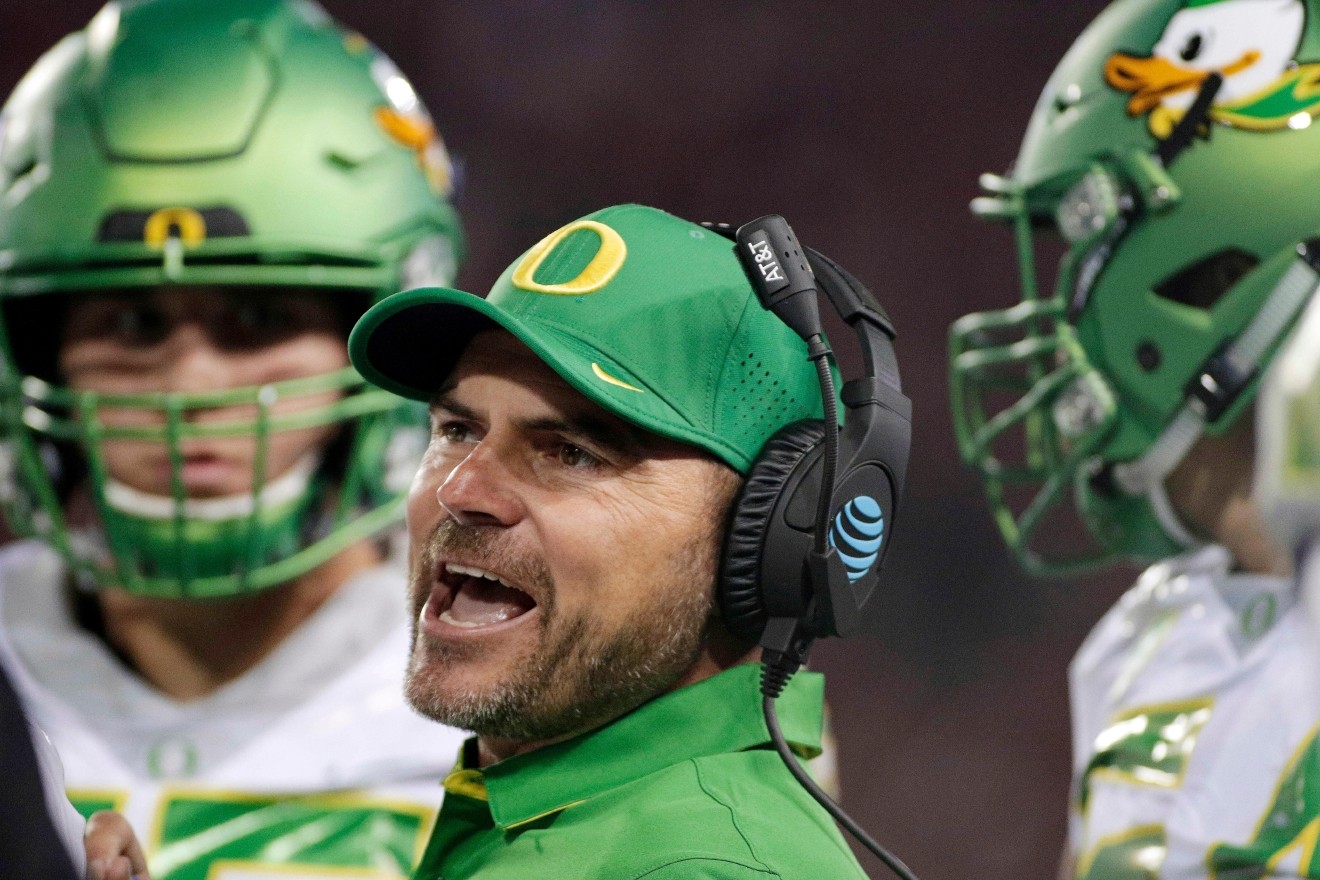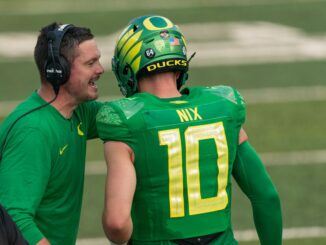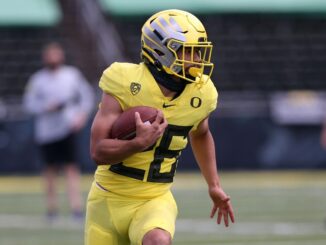
The end for Mark Helfrich at the University of Oregon finally came on Tuesday night, when Ducks Athletic Director Rob Mullens jetted back from a meeting of the College Football Playoff Selection Committee in Dallas to make the firing of his coach official at 7:00 PM on the dot.
Oregon announced the move with unnecessarily biting press release – quickly edited down – which was clumsily titled, “Football Program Getting New Direction.”
I’ll say. The long, painful, drawn-out process of dismissing Helfrich – which included sending the coach out to meet the media on Sunday morning and then go recruiting with no assurances that he still had his job – was embarrassing.
It was cruel and unfair to do to Helfrich, and it smacked of a program led by Athletic Director Rob Mullens that is as lost as it has been in several decades.
This new direction thing isn’t a joke. Oregon has, in recent times, been renowned in college football circles for two things: Coaching stability, and long-term vision.
The coaching stability is no more. Helfrich is the first Oregon coach to be fired in 40 years. There’s no telling how many of the Ducks’ longtime assistants – Gary Campbell, Steve Greatwood, Don Pellum, and Jim Radcliffe – will stick around to work with a new regime.
In that sense, whether letting Helfrich go was the right move or not, Oregon has lost a piece of its soul. It has now joined the ranks of the hiring-and-firing masses in college football.
But this lack of long-term vision is more troubling for Oregon right now. Helfrich was left dangling in the wind for weeks while the athletic department’s decision makers weighed his future.
He has now been fired without a replacement lined up, with names of potential candidates to replace him ranging from Scott Frost to – somehow – Greg Schiano. That’s an unsettling departure for Oregon Football.
Clearly, it wasn’t more unsettling than what transpired this season. 4-8, to be fair, was unprecedented for the Phil Knight Era of football at Oregon. This was, by any measurement, the program’s worst season in more than two decades.
From a strictly football standpoint, it was hard to avoid the signs that Helfrich had lost the handle. The Ducks were a grease-fire without Vernon Adams last year. They couldn’t play defense. They started getting beaten out for prized in-state recruits.
In his press conference in the wake of the firing, Mullens repeatedly made reference to a fracture in the “culture” that made Oregon so successful under Chip Kelly.
All wasn’t well in the football program this year. Discipline and attitude problems were rampant.
And, though he was an absolutely class act, Helfrich didn’t quite make a case for himself off the field either. His doggedly guarded nature – which held through the entirety of what must have been an extremely difficult season – wasn’t all that conducive to winning sympathy.
Helfrich never made the program his own. He ran Chip Kelly’s system and team nicely, but a Mark Helfrich system never came. The Ducks stopped innovating. Stopped recruiting well, too.
That said, Helfrich really did have just the one bad year. He won 33 games in his first three seasons as head coach, and would have had a young team and up-and-coming quarterback to build around next season.
Instead, Mullens – apparently, if you believe him, at some point on Tuesday and not in the weeks prior when Oregon lined up a coaching search firm – decided to make the move.
If a clear upgrade for Helfrich were available, this decision would have been easier to stomach. Same goes if it had been made on Sunday, with more confidence and respect for Helfrich and his players.
Instead, Oregon gets a question mark and a $15 million bill to buy out Helfrich and his staff – the very fabric of the program.
If a change had to be made, a change had to be made. But it didn’t have to be bungled. It hardly feels this morning like Mullins has an idea of where he’s going to take the program.
This is a sad day for Oregon. A good man – a good Oregonian – lost his dream job. Along with that, a core piece of the Ducks’ identity has gone up in smoke.
Helfrich is smart, he’s young, and he’ll learn from this. He’ll be back. The decline of Oregon Football is no longer his problem. It’s now on Mullins, and whomever Mullins hires.
If you’re comfortable with that, then you’re likely pretty happy with what’s gone down over the last 72 hours. But I’d venture to guess that most of you, for good reason, aren’t.
Success is fragile. Helfrich should know that better than anyone. A reprieve for a season like the one he just had, in this day in age, would have been a throwback move.
And Oregon, as we now know, is headed in a whole new direction.



